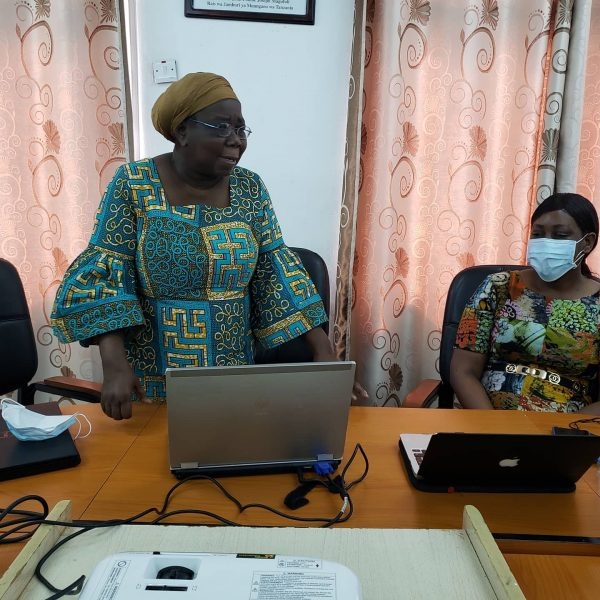
By Sharon Sauwa
The credit transaction called Malikauli conducted by middlemenand micro-scale retail traders in major markets has been a redeemer to businessmen during the height of the Covid-19 pandemic.
Mali kauli transaction is basically formed of purely business relationshipsand economic rationality rather than relationships originating in rural society. It transaction brings a lot of economic benefits to both middlemenand retailers.
The emergence of Covid-19 badly affected many businesspeople after the closure in May to June of schools, higher-learning educational institutionsand markets where there were dependable clients.
The closure of the schoolsand colleges led to the loss of capital among the traders, a situation which made them endure a difficult environment in doing business.
The secretary of the Sabasaba market in Dodoma city, Abuu Mohamed, says between Mayand June business activities at the market collapsed for lack of capital.
“Many traders lost their capitaland some of them disappeared from the market. Indeed, we were deeply affected,” he says.
He says on average his market was registering six cases daily from farmers who brought their produce under the Malikauli credit transaction.
“Now the situation is normalizing as businessmen have begun paying their debts after the government announced that Covid-19 has been defeated,” Mohamed says.
Medrina Madifii, a trader of sweet potatoesand tomatoes, at the Sabasaba market, says although the government announced the ‘defeat’ of Covid-19, the situation at the market has not normalized because their principal customers from schoolsand college have no capital.
“In the past the sale of sweet potatoesand tomatoes would have ended at 10 a.m. enabling you to get 200,000/- but because of the corona virus you spend the whole day only ending up with a paltry 20,000/-. Considering the transport costsand other necessary expenses, you are forced to enter into debts in order to run your business,” he says.
Medrina’s customers are mainly women who sell roasted sweet potatoes to various schoolsand colleges.
“To accumulate capital, under the Maulikauli credit transaction we are forced to trust our clients who sell the potatoes to schoolsand colleges. These women selling roasted potatoes are many. What we normally do, we give them potatoesand get the money later,” she says.
A trader at the Majengo main vegetable market in Docoma, Mariana Mazengo, says the period between Apriland May was the worst in doing business.
“We are now depending on loans from the farmers. They give us their vegetablesand pay them after selling,” she says.
Ashura Hamis, a resident of Chang’ombe area in Dodoma who sells roasted potatoesand cassava, says she lost her capital during the height of the Covid-19 crisis.
“What has rescued me is the trust I had built among the traders. I just goand collect the potatoes worth 10,000/- as I have been a trusted customer even before the emergence of Covid-19. They (traders) know that I won’t run away with their money,” she says.
WHAT ECONOMISTS SAY
Prof. Audas Bilane of the University of Dodoma says what is needed is that businesspeople must to try their best to accumulate capital for their businesses to thrive like in the past.
He says for traders having assets it is easier for them to seek loans from financial institutions.
“Big businesspeopleand those with companiesand industries have assets which could enable them secure loans from banks,” he says.
Dr. Billane says for small-scale traders having properties such as houses or land, they can sell themand accumulate capital for running their businesses.
Dr. Joel Mmasa, a senior lecturer at the Department of Economy of Dodoma University says the Malikauli credit transaction has short-term benefits to the economy. He says the benefits would be seen if the Malikauli credit transaction has minimal interest.
“Private individuals charge high interest rates to the extent of hurting borrowers,” he says, adding, the Maulikauli credit transaction brings a lot of economic benefits to both middlemenand retailers,
Selina Mazengo, a resident of Dodoma engaged in food vending, says she suspended her business during the height of the Covid-19 emergence as the number of her customers went down.
“I abandoned the business as most of my customers could not turn up at my workplace. I was incurring losses every day,” she says.
She says after the government announced that Covid-19 had been ‘defeated’ she continued with her business with a meager capital.
“The trust I have built with traders at the market has enabled me get food stuffs on loan,” she says.
Batuli Mkumbukwa, a trader at Temeke Stereo market who disburses loans to trusted retailers, says loan recovery was difficult during the height of Covid-19 crisis. This led to temporary suspension of loan disbursement to his customers.
Mkumbukwa says some of her clients were complaining of a harsh environment in doing business as far as the Covid-19 pandemic was concerned.
“If someone comes to youand complains that he or she is stuck in doing business, you also take consideration of the prevailing situation; you re compelled to understand what he or she says,” she explains.
Mkumbukwa is one of the leaders of Vicoba (Village Community Bank) at the Temeke Stereo market whose credit society was badly hit by Covid-19 in March, Apriland May this year.
Abdallah Hussein, wholesale trader at Majengo market in Dodoma says loss is a normal thing in doing business. He says many traders who were adversely affected by the pandemic operate under the Malikauli credit transaction.
He says the leadership at the Majengo market has devised a workable system of dealing with traders who fail to pay their loans. Such traders are taken to court upon failure of arbitration by the market authorities.
ENDS





